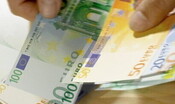According to the first rumors released by the Ministry of Economy and Finance, they would have signed the agreed biennial estimate just over 500 thousand VAT numbers which they should ensure to the treasury 1.3 billion euros. In front of 4.5 million self-employed workers and businesses potentially affected from this instrument (of which 1.8 million flat-rates and 2.7 million operators subjected to ISAs).
In terms of revenue, the agreement should have brought 1.3 billion euros to the state coffers, compared to the 2 billion initially estimated. Therefore, every person who has signed this agreement with the tax authorities has paid on average 2,600 euros. If with the deadline of October 31st the treasury will certainly collect much less than expected, isn’t it the case that the economic dimension of tax evasion for the self-employed is greatly overestimated? This is the question posed by the CGIA Research Office, which assesses the Mef data as “unreliable” and judges the agreement to be a “half-flop”.
According to the CGIA, no other compliance measure presented in the past “had been tailor-made like this one, in particular for those who systematically have the bad habit of paying few taxes. Subliminally, the pact proposed by the tax authorities was based on these assumptions: the taxpayer declares something more for the two-year period 2024-20257 and consequently pays a little more than what he paid in the past, allowing the treasury to immediately collect the liquidity necessary to cover the reduction in Irpef rates to the so-called middle class. On the other hand, the tax administration, in the same period of time, undertakes to limit its control action, concentrating its anti-evasion activity on those who have not joined”.
For those who can make a lot of money with their business, according to the CGIA, “this provision has allowed, with a relatively modest payment, to freeze for two years the assessment activity of the Revenue Agency against them. Considering that the entrepreneurs and self-employed workers are not stupid, you want to see that, although the Cpb was particularly advantageous, participation was significantly lower than expected, since the propensity for tax evasion of these categories would be much lower than estimates”.
Man
